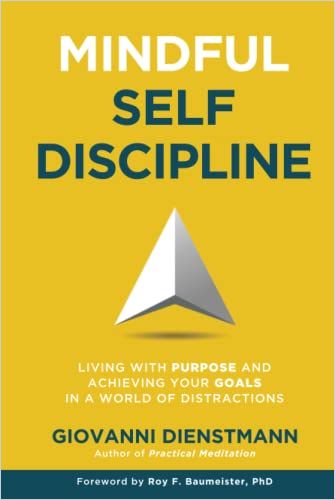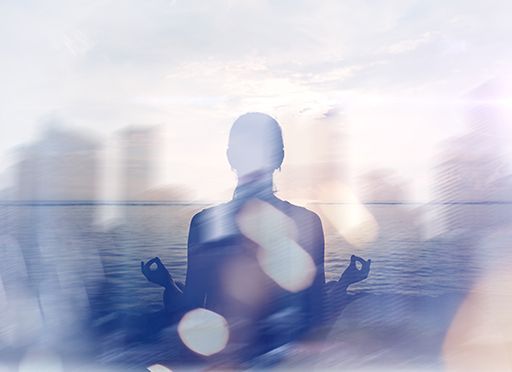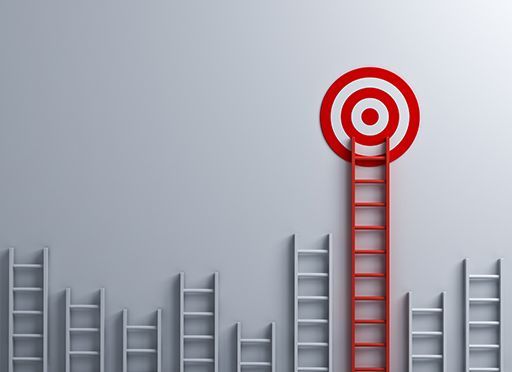“Meditation Trains Your Mind.”

Giovanni, in your book, Mindful Self-Discipline, you argue that the benefits of a daily meditation practice go beyond the pleasurable state of mind it promotes. Could you tell us a little bit about your approach to meditation and how it might differ from other approaches out there?
Giovanni Dienstmann: Meditation, for me, consists of three pillars: habit, technique and transformation. The habit pillar emphasizes the need to make meditation a daily practice. Our minds never go on vacation – they are always busy with thoughts, many of them negative. We need to think about meditation the same way we think about brushing our teeth. It’s an essential activity for us if we want to live well and function well as human beings.

As for your second pillar, technique, it’s easy to get confused with all the meditation styles promoted through countless meditation apps and courses. What are your recommendations for choosing a meditation technique?
There are over 100 different styles of meditation out there. They will give you different experiences and yield different results. Unfortunately, there are not a lot of comparative scientific studies on the different meditation styles. Most scientific studies focus on mindfulness, transcendental meditation and loving-kindness meditation. As someone who has experienced many different styles of meditation throughout my 22 years of practice, I know firsthand and from working with thousands of students that different styles lead to different benefits.
You’ve compared the different meditation styles to the many different forms of physical exercise we can engage in…
There are hundreds of different ways of doing physical exercise. They’re all good, but they’re all kind of different. They use different muscles. They affect our bodies differently. And this understanding is something that I bring to the table in the meditation world. You need to experiment with different meditation styles and find what works for you.
We need to think about meditation the same way we think about brushing our teeth.
Giovanni Dienstmann
After settling on a meditation technique and starting a daily practice, what’s the third component of an effective meditation practice?
The third pillar, transformation, is the idea that you need to infuse your practice with a purpose so you can extend the benefits of meditation from the meditation cushion into everyday life. Meditation is not just about plugging in your headphones, pressing “play” and zoning out for 10 minutes. You will greatly enhance the benefits of meditation if you purposely seek to apply the mental states you develop during meditation to your daily life. If you can bridge the gap between meditation and daily life, that’s where the real transformation happens.
Can you give an example?
Meditation helps you to become more aware. It trains your willpower and ability to let go of thoughts that don’t serve you. And this is where the idea of self-discipline comes in. Self-discipline is our ability to exercise some degree of control over our actions, intentions, habits and emotions. Let’s say you are a person who tends to be a bit irritable or impulsive. You then infuse your daily meditation practice with the purpose of training your awareness and willpower. In your daily life, you set the intention that whenever you feel triggered in your body, you will pause and take five deep breaths. You will then use your willpower to shift your state so that you can respond from a place of calmness and integrity rather than acting on the impulse.
So for you, meditation is much more than a stress relief technique…
Meditation is not only about peace – it is about empowered peace. Meditation trains your mind. It sharpens your faculties. It makes you more aware and thus more empowered. Some meditation styles get you into a very relaxed and happy state but can also take away some of your motivation and drive. It’s a state of mind that won’t help you achieve your goals.
Concentration meditation can help with sustaining motivation because it trains you to focus entirely on one thing.
Giovanni Dienstmann
How can meditation help us achieve our goals?
One of the biggest challenges in meditation – as well as in life in general – is distraction. We set goals and then get distracted by less important or more immediately gratifying things. In meditation, we train ourselves to take note when our mind gets distracted and then use our willpower to bring our attention back. Next time you are at work and find yourself wanting to procrastinate on an important but cognitively demanding task, you can apply the skills of meditation to notice your mind being distracted and then use your willpower to bring your mind back to the task.
Among all the different meditation techniques, which ones lead to a more engaged type of mindfulness?
We can classify the many types of meditation into four main buckets. The first bucket is observation. You open yourself up to the present moment, noticing whatever comes and goes and letting everything be as it is. Mindfulness meditation falls into this bucket. The second bucket is concentration. You choose an object of focus – for example, your breath or a mantra – and direct all your attention there, moment by moment. In concentration meditation, your awareness is narrow and deep, which is the opposite of the broad awareness you practice during mindfulness meditation.
You need to experiment with different meditation styles and find what works for you.
Giovanni Dienstmann
The other two buckets are both types of relaxation meditations. The third bucket includes practices such as yoga nidra and body scans that help you relax your body and thus your mind. The fourth bucket includes pure awareness practices during which you are not paying attention to anything and rest in a blissful state. It is really the meditation styles in the second bucket that are most useful if your goal is to work on your self-discipline.
How so?
An increasing number of studies show that mindfulness, which is a type of observation meditation, can diminish your motivation when you practice for long stretches of time. This doesn’t happen with concentration meditation. In observation meditation, you’re letting everything be and you’re letting everything pass. You’re seeing all things equally. Motivation, however, is about the exact opposite: You are not feeling equal about all things. Motivation is about feeling powerfully about one thing that moves you to action. Concentration meditation can help with sustaining motivation because it trains you to focus entirely on one thing.
Meditation is not only about peace – it is about empowered peace.
Giovanni Dienstmann
So if you want to get better at following through on your goals, practice concentration meditation. Are there situations when practicing mindfulness meditation is more beneficial?
For someone who struggles with impulse control, an observation-style meditation will be a better choice. If you’re impulsive, you will want to develop the ability to zoom out and let things be rather than be pulled in by them. If you get easily hooked into thoughts, memories or emotions, you don’t have a problem with focusing. You’re entirely focused on the thing that arises. In this case, you will want to develop the opposite of concentration, which is the ability to let go and let be.
In a world replete with distraction, the ability to focus is becoming something like a superpower for knowledge workers. How can meditation help in honing this skill?
Our ability to focus involves two different mental faculties: the ability to let go of distractions and the ability to hold on to a task. Observation-style meditations help you with the former, concentration practices help you with the latter. The good news is that if you want to develop these skills, it won’t take much for you to stand apart from the rest. A little bit of self-discipline will go a long way.
If you can bridge the gap between meditation and daily life, that’s where the real transformation happens.
Giovanni Dienstmann
Self-discipline can sometimes have a bit of a negative connotation. How do you prevent self-discipline from turning into rigidity?
I love the question, and I get it a lot. You know, the word “discipline” and the word “disciple” have the same root. In Greek, the word for it is enkrateia, which means control or power. To be disciplined is to have the capacity to learn. Self-discipline is a form of self-mastery. It is not self-punishment but self-respect. It means that you are respecting your commitments to yourself; that you are prioritizing the things that are most important in your life; and that you are choosing to live in harmony with your values and goals, day after day. Self-discipline helps you make choices that will take you closer to the goals you choose. Without developing the skill, you will gravitate toward the conditioned life. You will become the product of your environment, and your future tends to be a repetition of your past.
Self-discipline is a form of self-mastery. It is not self-punishment but self-respect.
Giovanni Dienstmann
Your approach to self-discipline differs from that of others. Can you elaborate?
I think there are around 130 books published on self-discipline, and you can find countless videos on the topic on YouTube. Much of what’s out there, however, makes self-discipline sound dry, boring and far-fetched. Much of the literature on self-discipline overemphasizes willpower and mental toughness. I call this military discipline. But there is another element to self-discipline, which is awareness. I teach self-discipline by putting awareness first. You start by bringing clarity to your internal world and becoming aware of your aspirations. Once you know what is most important to you, willpower becomes easier.
Awareness, then, helps you stay connected to the “why”…
The more we exercise awareness, the less we need to force ourselves to do something because it just makes sense. Let’s say you come home from work and are faced with a choice: to go for a run or to sit down on the sofa to watch Netflix and eat ice cream. The latter definitely feels more immediately gratifying. Awareness, however, helps you weigh your long-term goals against your immediate desires. What kind of person do I want to become? If you remind yourself of your ideal future self, the decision to go for a run becomes a no-brainer. When you start bringing your future into the present, it becomes much easier to make the choice that will advance your goals.
About the Author
Giovanni Dienstmann is a best-selling author and speaker who advocates for improving your life through self-discipline and meditation. He coaches and teaches meditation at schools, hospitals and spiritual centers.







